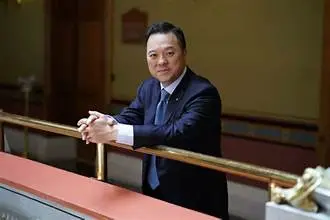Similar to Sputnik 1 spurring the exploration of space, executives at Q-Bank Group hope their cognitive research products bring understanding of a closer frontier: the human brain.
Whether it”™s predicting what shoppers will buy next or objectively measuring pain, the Greenwich-based company is taking brain science to the next level ”” commercialization. By selling its technologies to hospitals, companies and the government, the group even hopes to help solve some of today”™s greatest brain aliments like Alzheimer”™s disease, epilepsy and attention deficit and hyperactivity disorder.
“We”™re excited about a world where people are free from these various ailments,” said Dell Hines, Q-Bank CEO. “We”™re committed to helping innovation that helps man go forward, increasing quality of life, their productiveness and their potential.”

The company is one of several participating in the Business Council of Fairfield County”™s Growth Advisory Services within the state”™s innovation ecosystem, CT NEXT. Working with the council, the startup has emerged as a high-profile “speed up” company within the county. Already it has secured $1 million in funding from the national program for Small Business Innovation Research, the U.S. Department of Defense and other sources.
Formed by a group of technology executives and a scientist at Massachusetts Institute of Technology, the firm holds more than 40 intellectual property patents and has ties to Harvard University, Boston University and Oxford University, in addition to MIT.
The ”˜Q”™ in Q-Bank is a reference to the fictional character in James Bond who supplies the British Secret Service with the latest gadgets and devices.
By analyzing electrical activity along the scalp and other data inputs, Hines said the company is able to look at brain wave signatures to determine how a person might speak or walk. With that information, the company can then predict behaviors and identify brain disorders, sometimes early on.
Currently one of Q-Bank”™s leading projects is under development with the Defense Department to objectively measure pain. Under current medical procedures patients are asked to subjectively rank their pain on a scale of one to 10, which can lead to misdiagnosis and unnecessary treatment.
From the Defense Department”™s perspective a more objective pain scale would also help build a more efficient triage system, ranking patients in order of pain severity. For instance, it can be difficult for care providers to tell whether a man wounded in battle and unconscious on the field is in more pain than someone screaming for help in the hospital. But with mobile pain detection technology, as developed by Q-Bank, there is a clearer answer.
Hines said Q-Bank”™s goal is to develop a portfolio of technological solutions, such as a pain monitor, for various brain-related issues. For each product the company develops, it plans to select key clients to act as both partners and customers. Rather than create general-use products for sale, Hines plans to create individual Q-Bank companies to service the specific technological needs of partners, such as the Defense Department. Eventually, he”™d then like to see those individual companies sold to partners.
“I know you have to learn to claw before you walk,” Hines said. “Some of these things are very advanced and will take time for the market to adopt them.
“But by contributing to the solution to these sorts of problems, we can take one more step for mankind,” he said. “Ultimately that”™s what we”™re after.”


















